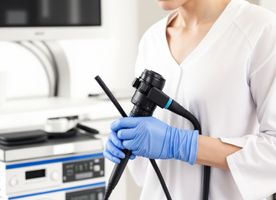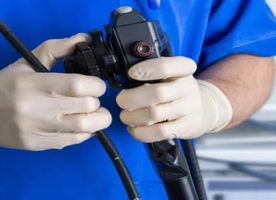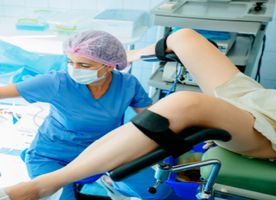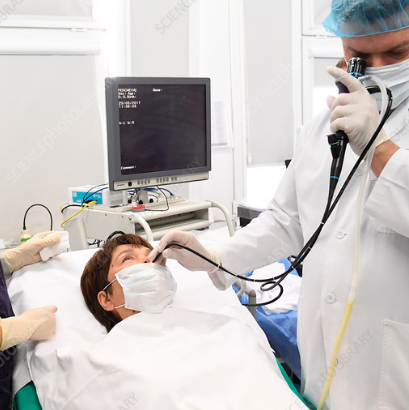Gastroscopy in Spain
Search and Compare the Best Clinics and Doctors at the Lowest Prices for Gastroscopy in Spain
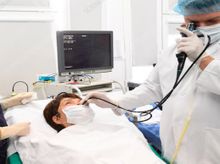






























































































































































No Time?
Tell us what you're looking for and we'll reach out to the top clinics all at once
What does a Gastroscopy Procedure Involve?
Gastroscopy is a step-by-step process. First, your doctor will need to verify your health. This is done by carrying out several tests and scans. This preparation is crucial so as to avoid any unforeseen issues crop up during the procedure itself. The treatment phase begins with you being put under anesthesia. After this, the doctor will make precise cuts in the necessary regions and use specific instruments to complete the process.
But the process doesn’t quite end with the completion of the procedure. There's the all-important aftercare to consider. This is a crucial part of the journey to ensure you heal appropriately and swiftly. That means scheduling regular check-ups with your doctor and strictly adhering to the given medication or set exercise routines. This follow-through is a must, to guarantee you benefit fully from the Gastroscopy.
How Long Should I Stay in Spain for a Gastroscopy Procedure?
The duration of your stay in Spain for a Gastroscopy can depend on a lot of things. First and foremost, it hinges on the specifics of your procedure. This will set the pace for everything - starting from how long the operation takes, to the duration of your hospital stay and even the recovery period. Plus, everyone heals differently and at different rates. Your doctor will be the best person to discuss this with you, to give you an estimate based on your specific circumstances.
Having a support system in place during this period can be helpful. People who can assist with transportation, meals, and other day-to-day tasks can make your recovery period smoother. It could be family, friends, or even hiring professional caregivers. Keep all of this in mind when planning your trip to Spain for your Gastroscopy.
What's the Recovery Time for Gastroscopy Procedures in Spain?
A gastroscopy, which is a procedure that examines the upper part of the digestive system, is typically used by doctors to help diagnose various health conditions. After having this procedure, it's natural to question how long the recovery period might be. Various factors can influence this, including the particular location where the procedure is conducted. In general terms, however, most research shows that the average recovery period from a gastroscopy is somewhere between one to two weeks.
Feeling apprehensive or anxious about the recovery process is absolutely normal. You can reduce these concerns, though, by ensuring the medical facility where you have the procedure has a good reputation. Quality of care is absolutely crucial and can greatly impact recovery times. A top-notch medical centre will provide excellent care throughout the procedure and the recovery period, thus potentially improving your healing process. As such, wisely choosing the place where you have your gastroscopy is a crucial step toward experiencing a speedier recovery.
What sort of Aftercare is Required for Gastroscopy Procedures in Spain?
Gastroscopy has some risks and side effects. Following points should be kept in mind for the aftercare of it:
- You might be under the influence of anesthetics in the first few hours. Make sure that some family member, friend or relative is with you to look after you.
- Follow the guidelines given by your physician for a quick and better recovery.
- For sore throat, use boiled sweet liquids. They will have a soothing effect on your throat.
- Take your medicines as and when prescribed by the doctor.
- Do not drive for at least 24 hours after gastroscopy. Wait till the effects of sedatives subside.
- Stay away from alcohol for 24 hours.
- Do not take any sort of sedatives or tranquilizers immediately after the procedure as you are already under the influence of them.
- Do not climb up the stairs if you are drowsy.
What's the Success Rate of Gastroscopy Procedures in Spain?
This procedure can prove instrumental in diagnosing various health conditions. However, patients considering having a gastroscopy in the specified area might be nervous about its success rates. From the vantage point of medical statistics and research, it is able to be assured that the success rate of gastroscopy procedures is notably high. The exact figures may vary, but it’s safe to say that the vast majority of patients come away from the procedure with more certainty and a clearer path toward health.
Emotions like fear or anxiety can be overwhelming, particularly when it comes to medical procedures. While these feelings are both natural and understandable, don't let them overshadow the importance of the decision at hand. Choosing a reputable medical facility is paramount for your peace of mind and confidence in the procedure's success. As the quality of care contributes significantly to the success of a gastroscopy, a facility known for its professionalism and competence can offer the assurance you need.
Are there Alternatives to Gastroscopy Procedures in Spain?
The alternatives are:
- Barium swallow: it is also known as barium meal. In this process, X-ray is asked to swallow liquid containing barium which forms a coat inside your esophagus and stomach. This layer then shows up on X-ray. Abnormality is found through x-ray film and treatment is proposed. It has a drawback that you cannot take a sample using this technique.
- CT gastroscopy: computed tomographic or virtual gastroscopy is a non-invasive technique for the diagnosis of gastric ulcers, tumors, carcinoma, etc. Multiple X rays are employed to produce a three dimensional (3-D) image of your stomach. This image is then used to look up for abnormalities.
This information has been accurately sourced and verified by a medical professional for its accuracy, however, we strongly recommend you to consult with your doctor before pursuing medical procedures overseas.


















